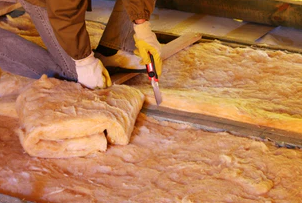As homeowners move towards running a more sustainable home, the energy ratings on all of our appliances become a more important consideration.
But with all the labels and classifications out there, what do they really mean? Let's delve into the world of energy ratings, their importance, and what you, as a consumer, need to know.
Energy Ratings Explained
The labels on all your gadgets at home indicate the energy ratings for appliances, which tells you how much energy an appliance uses during its typical operation.
They are graded on a scale from A to G, with A representing the most efficient product and G the least. Some might be familiar with the older scale, which ranged from A+++ to G.
While you might think all appliances with the same rating consume equal amounts of energy, that's not always the case. For example, according to the Energy Saving Trust, a G-rated 265-litre fridge freezer might cost you around £85 a year to run, while a larger, better F-rated 424-litre model could set you back around £95 annually.

How Do Modern Energy Ratings for Appliances Work?
Due to evolving technology and more eco-friendly designs, newer appliances often hover in the top rating brackets of the older scale. To combat this and ensure clarity, the energy label was revised in 2021, simplifying it to the A-G scale.
Which Energy Rating is Best?
While previously, A+++ products were the golden standard, they now typically fall under the B or C class with the new system. As a general rule, the higher the energy rating, the more efficient the appliance is, but it’s important to note that the size of the appliance will have an impact on its energy consumption.
For example, a larger, higher-rated F model 60” TV still costs more to run than a smaller, lower-rated G model 32” TV.
How to Improve Your Home’s Energy Rating
One of the appliances that contributes the most to your home's energy consumption is your boiler. Modern boilers available in the UK are at least 90% efficient, making them A-rated.
Given that over half of a home's total energy consumption is dedicated to heating, an efficient boiler can significantly reduce both your bills and carbon footprint. In fact, investing in a more efficient boiler can enhance your home’s energy rating by up to 40 points!
While a boiler can be a game-changing upgrade, minor adjustments to the way you use appliances in your daily life can also add up. Simple practices like completely switching off devices that are left on standby, boiling only the required amount of water, and only washing a full load of laundry can make a difference.
Harness the Power of Smart Technology
You can take your home’s efficiency to the next level by investing in a smart room thermostat — set your own comfort zones and schedule temperatures hour-by-hour based on your family’s lifestyle.
By understanding energy ratings for appliances and how to determine which energy rating is best, you can help move your home towards a more sustainable, cost-effective future. Discover how smart home technology can help the efficiency of your appliances go further here.







